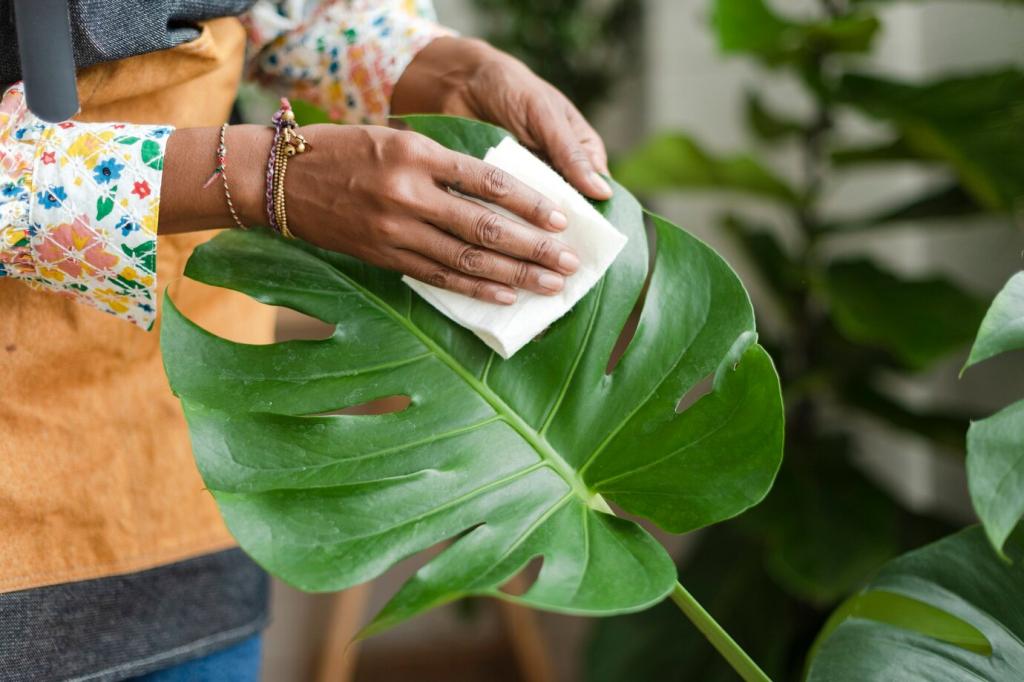Crystal Clarity, Naturally: Naturally Derived Window and Glass Cleaners
Today’s theme: Naturally Derived Window and Glass Cleaners. Discover plant-powered ways to achieve brilliant, streak-free panes without harsh fumes. Learn the science, get proven recipes, and master pro techniques. Share your tips, subscribe for updates, and help our community shine brighter.
Why Choose Naturally Derived Cleaners for Glass
Naturally derived window and glass cleaners typically contain fewer volatile compounds, helping reduce strong odors and lingering fumes. That means fresher indoor air, comfortable cleaning sessions, and windows you actually enjoy opening. What differences have you noticed? Share your experience with our community.

Why Choose Naturally Derived Cleaners for Glass
Biodegradable ingredients, refillable bottles, and concentrated mixes help naturally derived cleaners tread lightly on waterways and landfills. One small switch can lead to many sustainable habits. Tell us your favorite low-waste tip for keeping glass spotless and conscience clear.
Ingredient Spotlight: Nature’s Glass Heroes
White vinegar’s acetic acid and lemon-derived citric acid tackle mineral deposits and soap scum, helping panes look crisp again. They break bonds that cloud glass, restoring clarity quickly. Do you prefer vinegar’s simplicity or citric’s citrusy freshness? Cast your vote below.
Ingredient Spotlight: Nature’s Glass Heroes
Plant-based ethanol accelerates evaporation, reducing water spots and streaks on windows and mirrors. Just a small percentage makes a noticeable difference in dry time and brilliance. Have you tried sugarcane ethanol in your mix? Share your ratio and results with readers.
Ingredient Spotlight: Nature’s Glass Heroes
Glucoside surfactants, derived from sugars and plant oils, loosen grime so your cloth or squeegee lifts it away. They’re gentle yet effective on smudges and prints. Which surfactant works best for you—decyl or coco-glucoside? Tell us why in the comments.
DIY Recipes You Can Trust
Combine one part white vinegar with one part distilled water, plus a few drops of plant-based surfactant. Optional: a splash of bio-ethanol for quick drying. Avoid marble or natural stone surfaces nearby. What’s your go-to everyday ratio? Share it so others can compare.
Technique Matters: Streak-Free Methods
Choose the Right Tools
Use a high-quality microfiber cloth or a rubber-edged squeegee for smooth, lint-free results. Avoid paper towels that shed fibers. Keep a separate cloth for polishing edges. Which tool changed your routine the most? Share your recommendation for beginners.
Master the ‘S’ Pattern
Spray lightly, then guide a squeegee from top to bottom in overlapping ‘S’ strokes, wiping the blade between passes. This technique prevents droplets from drying into streaks. Have you filmed your process? Post your tips so others can learn step by step.
Time It Right
Clean glass when it’s cool and out of direct sun to reduce fast evaporation and streaking. Early mornings or shaded hours work best. What timing works in your climate? Tell us your seasonal schedule for flawless, repeatable shine.
Stories That Sparkle: Community Wins
After a winter of condensation, Maya mixed vinegar, distilled water, and a touch of bio-ethanol. Sunlight poured through again, saving her seedlings. She now cleans monthly and shares progress photos. How did your first natural switch feel? Tell us below.
Stories That Sparkle: Community Wins
Preparing to move, Jamal tackled years of smoke film on mirrors using a glucoside-enhanced vinegar spray. The landlord noticed immediately, praising the streak-free gleam. Have a before-and-after transformation? Describe your steps so others can replicate the success.


Safety, Storage, and Surface Smarts
Avoid overspray on marble, limestone, or cement-based sills; acids can etch and dull. Be cautious around window films or specialty coatings. Do a small test on hidden areas first. What surfaces surprised you? Share cautionary tales to save someone’s finish.
Safety, Storage, and Surface Smarts
Use clearly labeled, reusable bottles and note your recipe and date. Keep cleaners away from children and pets, and store in a cool, shaded spot. What labeling system keeps you organized? Post a quick tip to help new readers stay safe.


